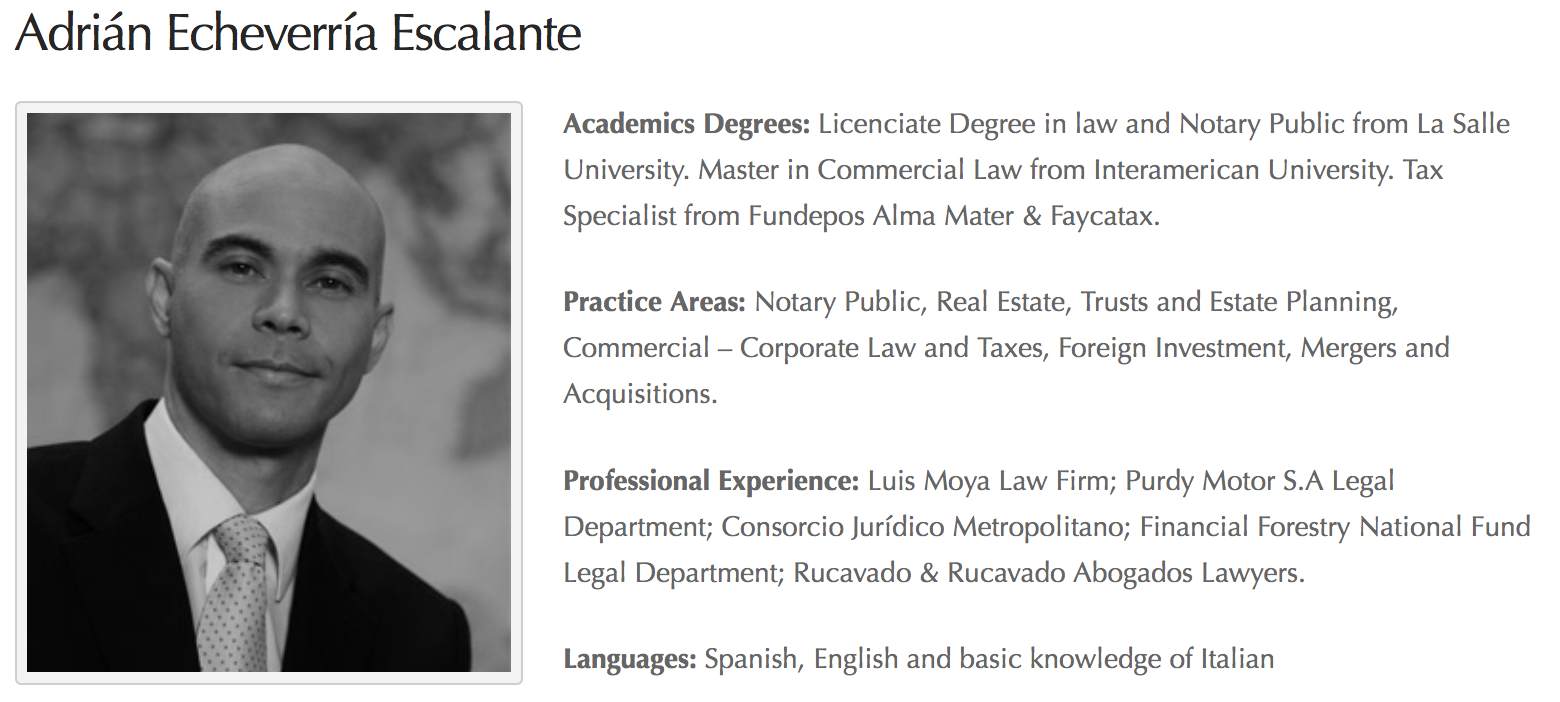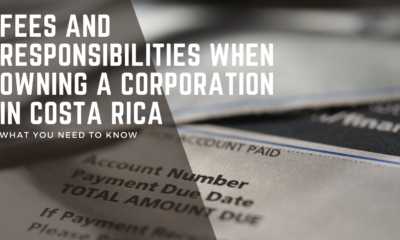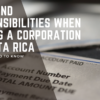Tax Obligations of Inactive Companies in Costa Rica
Companies or corporations have traditionally been used in Costa Rica as vehicles to organize business or family assets. Before the Law for the Strengthening of Public Finances, these holding companies which don’t generate income were not considered taxpayers of the Income Tax. However, with the reform introduced by this Law approved in December 2018, these companies are classified as taxpayers and are called inactive companies. Nonetheless, there is no obligation to pay any tax, but only to comply with formal obligations.
In light of this, it is important to clarify that it has not created any tax on inactive companies, nor has created a wealth tax either. The new element is that compliance obligations were created for these companies, such as registration with the Tax Administration and the presentation of an annual declaration of the patrimony, through a form known as D – 101.
If, having submitted the information, the Tax Administration considers that it must verify the origin of the funds (based on the cross-information it has in its databases ), it could require more information through the regulatory procedures that the Law determines. But under no circumstances, the Tax Administration will automatically charge or impose burdens. Faced with any question, the Tax Administration must initiate an administrative procedure to verify in detail the tax situation of any company. What are the tax obligations that inactive companies must meet?
-
Once registered in the National Registry, within 10 business days you must submit form D-140, to register the updated data of the legal representative, fiscal address and economic activity code “960113 legal persons incorporated in the country that do not develop activity from a Costa Rican source”. The Tax Administration will automatically register the legal entity under code 960113.
-
Submit form D-101, in which assets, liabilities and capital stock are declared. This form is the same for the Income Tax. This return must be submitted annually within 2 months and 15 calendar days following the end of the Income Tax fiscal period, that is, no later than March 15.
-
Annual payment of the annual corporate tax (validation fee) during the month of January.
-
Annual payment of the Education and Culture Stamp during the months of February and March.
-
Present annually the Declaration of Transparency and Final Beneficiaries during the month of April with the Central Bank.
An inactive company should not issue electronic vouchers. While the company maintains its legal validity, it cannot be de-registered of the Single Tax Register (RUT for its acronym in Spanish).
What documentation must company safeguard?
-
Members’ Assembly Book, with the duly signed minutes of approval of the contributions made by the partners.
-
Shareholders Registry Book up to date and signed, with the respective share certificates (in the case of corporations S.A.). Partners Registration Book up-to-date and signed in the case of Limited Liability Companies and in which, despite not being mandatory, it is also recommended to have the respective membership units’ certificates duly signed and in order.
-
Make an inventory of bank accounts, financial investments, real estate and personal property and other rights that the entity possesses, with the respective documentation of the acquisition.
-
Identify the obligations of the company with the details of the data and situation of each credit operation and the respective contracts.
-
Maintain duly updated accounting records, in compliance with IFRS regulations.
What penalties are generated for non-compliance? In an eventual inspection, the Tax Administration will try to verify the origin of the funds for the acquisition of the company’s assets. In the event that the company does not have the supporting information, the Administration could determine an unjustified increase in equity.
In general terms, the applicable sanctions will depend on the type of non-compliance, which would be based mainly on the Code of Tax Regulations and Procedures. In case you have any questions, do not hesitate to contact Adrian Echeverria at: aecheverria@rebattorneys.com or Phone: +506 2204-7080 U.S.: +1 (305) 748-4340






























